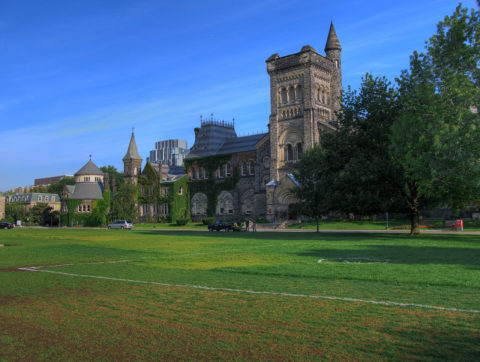In The Line, Josh Dehaas rounds up the concept of private property rights for the University of Toronto students (and non-student antisemitic fellow occupiers) who have been squatting for Palestinian terrorists on university property for the last while:

University College, University of Toronto, 31 July, 2008.
Photo by “SurlyDuff” via Wikimedia Commons.
After Justice Koehnen delivered his ruling Tuesday ordering the occupiers to dismantle the People’s Circle for Palestine at the University of Toronto, one of the protesters accused the school of hypocrisy.
“It’s quite interesting that a university that claims to practice decolonization is falling back on this claim of private property,” master’s student Sarah Rasikh told a journalist on the day before the students began taking down their tents.
“U of T and the Court more specifically is quite literally telling Indigenous students to leave and get off of their own land,” she added.
Rasikh has a point, sort of.
As someone who did law school relatively recently, I can attest that many university professors are downright hostile to the concept of private property. They commonly claim that all of Canada belongs to Indigenous people and that Indigenous peoples don’t believe in private property. Rather, they believe in “sharing”. Decolonization therefore requires that land be treated communally, or so the theory goes. University administrators who pay lip service to the concept of decolonization shouldn’t be surprised when students try to turn theory into action.
Thankfully the law still protects private property rights. Students who didn’t get taught how that works by their professors ought to give Justice Koehnen’s decision a read.
As Justice Koehnen explained, “in our society we have decided that the owner of property generally gets to decide what happens on the property”.
“If the protesters can take that power for themselves by seizing Front Campus, there is nothing to stop a stronger group from coming and taking the space over from the current protesters,” he went on. “That leads to chaos. Society needs an orderly way of addressing competing demands on space. The system we have agreed to is that the owner gets to decide how to use the space.”
“If it is not the owner who gets to determine what happens on the property it will become a brutal free-for-all,” Justice Koehnen added.





